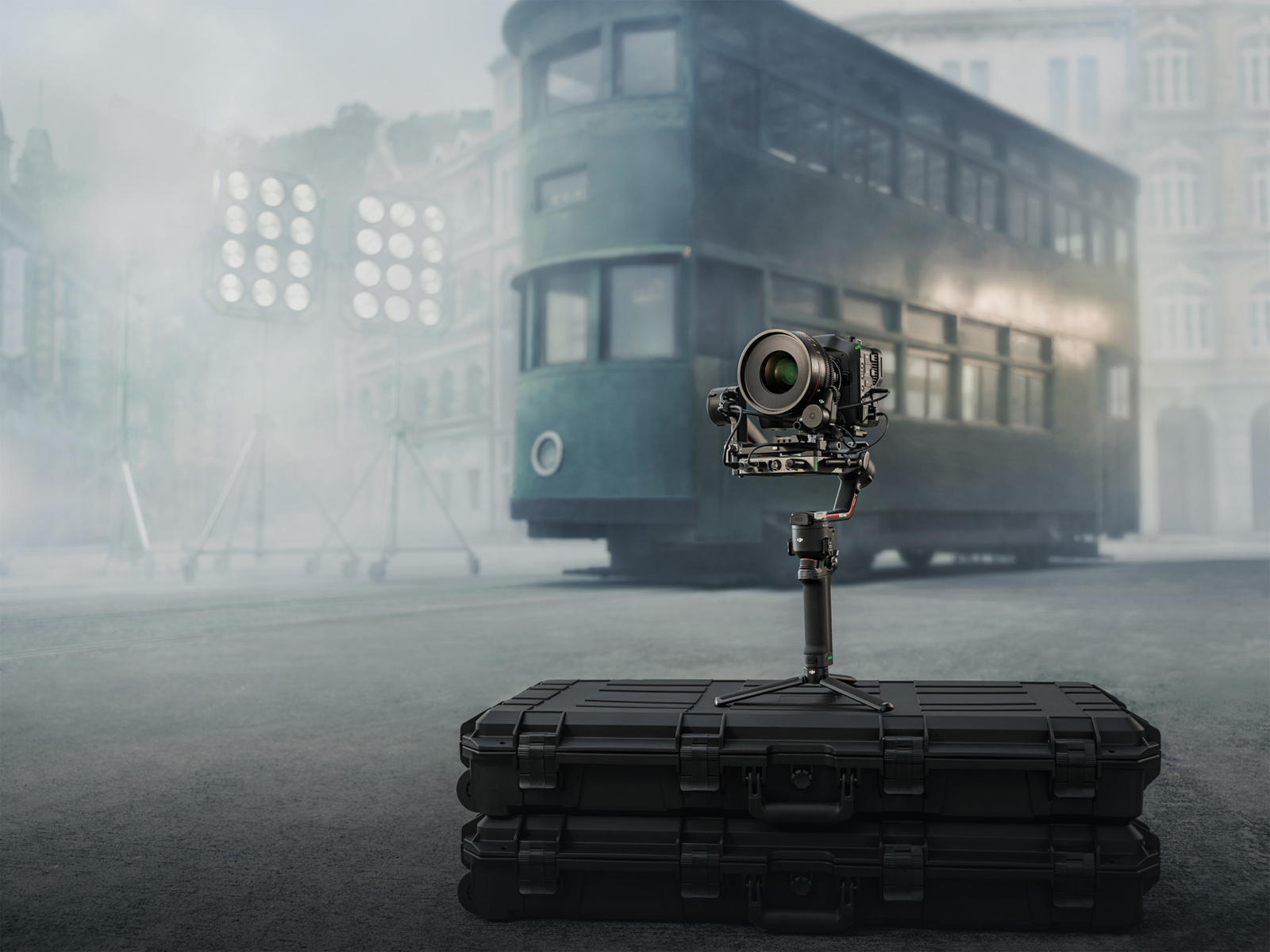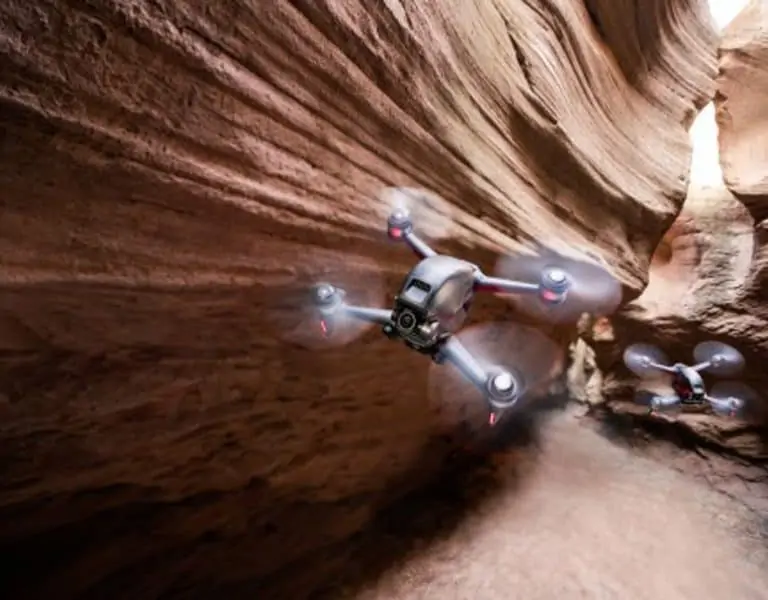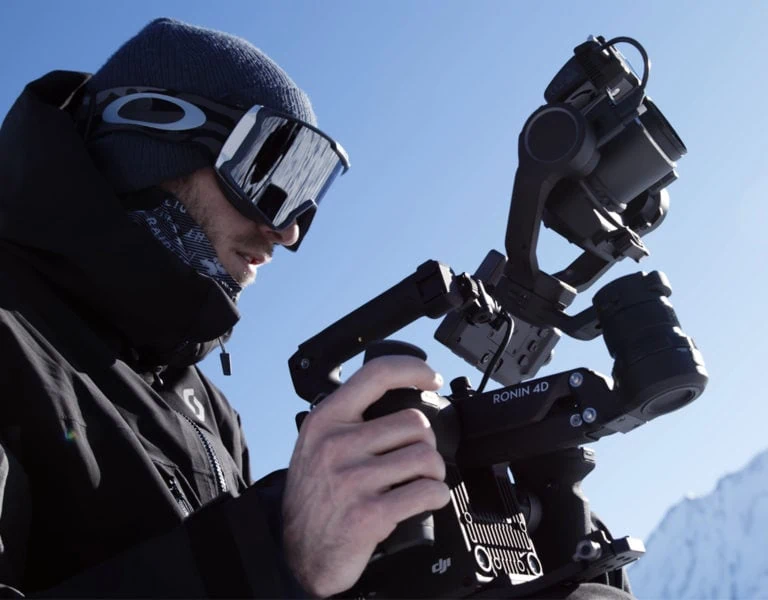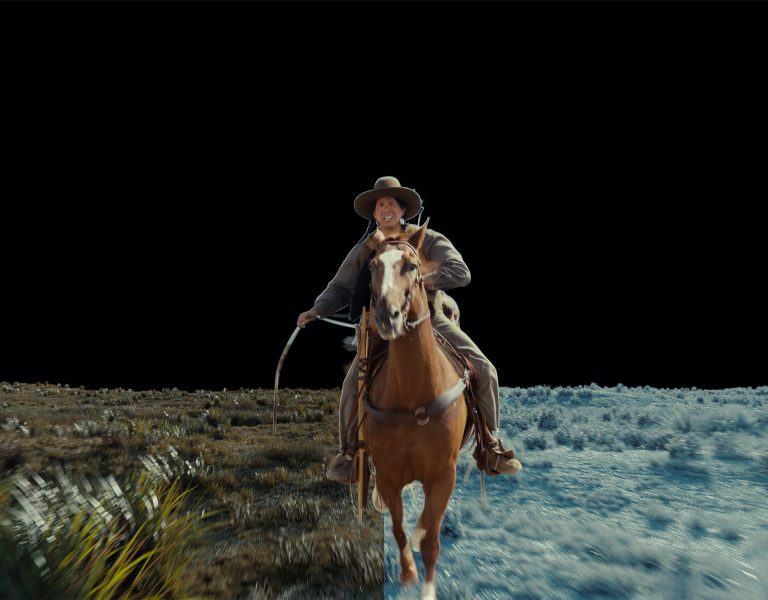
DJI unveils three new tools that will enable filmmakers and the content creation community to easily, seamlessly, and intuitively bring their visions to life.
The DJI RS 3 and DJI RS 3 Pro stabilisers bring improvements to the classic and reliable Ronin series, while DJI Transmission – DJI’s first independent wireless video solution – combines reception, monitoring, control, and recording in one.
The Ronin product line is a key part of DJI, supporting content creators from keen hobbyists to professionals around the globe. Last October’s launch of Ronin 4D cemented DJI’s presence in the professional filmmaking world, giving cinematographers an entirely new way to create. Whether it’s the new automated axis lock system, 3rd-Gen RS stabilisation algorithm improving performance by 20%, or the one-tap calibration, RS 3 and RS 3 Pro have been optimized for user efficiency and reliability.
“The needs and requirements of the content community are extremely important to us,” said Paul Pan, senior product line manager at DJI. “Ever since the introduction of the first Ronin back in 2014, we’ve continually gained feedback from industry professionals on how we can enhance our products to cater to their evolving needs. Implementing this feedback, we’ve optimized the design, stabilization, and gimbal control to create next-generation, highly effective, and reliable stabilizers designed for unparalleled efficiency. Furthermore, we don’t just stop at stabilization. We understand the importance of video transmission and the various pain points faced in large, complex venues. Whether it’s dealing with range, lagging images, or lost signals, the new DJI Transmission addresses these issues and offers an incredible 20,000-foot on-ground transmission distance.”
Every Second Counts
DJI RS 3 incorporates a range of new features to get filmmakers up and running as quickly as possible. A redesigned axes-locking system means that the process is now automated. By simply turning on the gimbal, the automated axis locks release and unfold the gimbal, allowing the operator to get started in seconds. Tapping the power button once will send the device into sleep mode, which makes powering on the device, stowing it away, and relocating much faster. There’s also no need for repetitive balancing with position memory via quick-release plates, enabling fast mounting with the perfect balance of the payload. Furthermore, the addition of a Bluetooth Shutter Button supports automatic connection without the need to connect a camera control cable.
Lightweight Body, Heavyweight Stabilisation
Weighing in at just under 1.3 kg(2.8 lbs), RS 3 can easily be held in one hand, while its just under 3kg (6.6lbs) tested payload capacity is more than enough to support the majority of mainstream devices.
Thanks to the 3rd-Gen RS Stabilisation Algorithm, a 20% improved performance over RSC 2 can be seen, making it easy to operate while shooting at low angles, running, or even filming from a moving vehicle. For lenses with focal lengths of up to 100mm, SuperSmooth mode aids stabilization even further.
Parameter Setting at The Touch of a Screen
In addition to its improved stability, RS 3 is also easier to configure with a brand-new 1.8-inch OLED full-color touchscreen, an increase of 80% surface area when compared to the previous RSC 2. Most gimbal setups can be done directly without connecting to the mobile app, while the UI and interface logic have been redesigned to put all controls rights at your fingertips. This includes a physical gimbal mode switch that operators can slide to alternate between pan follow, pan and tilt follow, and FPV modes instantly.
All-Day Battery
With a brand-new battery grip providing up to 12 hours of battery life, creators can concentrate on the action without worrying about power. RS 3 features a quick-release structure and supports PD fast charging at 18 watts. The battery can be charged independently or even during use, allowing users to operate non-stop.
For Those Demanding Even More
For users with higher demands, RS 3 Pro is an even more professional version offering a full suite of features as a versatile camera platform.
Arms constructed from one uncut piece of carbon fiber – just like Ronin 2 – makes RS 3 Pro lighter and stronger than the jointed carbon fiber material used on previous stabilizers. They have also been extended to allow for more balancing space for commonly used professional cameras like the Sony FX6, Canon C70, and RED Komodo, and the structure has been optimized to keep its weight at 1.5 kg1 (3.3 lbs) with an impressive 4.5kg (10lbs) tested payload capability. Naturally, the stabilizer also shares the automated axis locks, Bluetooth Shutter Button, 1.8-inch OLED touchscreen, and gimbal mode switch of RS 3.
Manual Lenses, No Problem
Manual lenses can bring focusing challenges for solo shooters involved in professional projects. RS 3 Pro carries Ronin 4D’s advanced LiDAR focusing technology to create the new DJI LiDAR Range Finder (RS), capable of projecting 43,200 ranging points within a 14-meter indoor area. A next-generation focus motor provides torque three times stronger with one-step mounting, enabling autofocus on manual lenses with no need for repetitive calibration. Furthermore, the LiDAR Range Finder carries a DJI-developed chip identical to the one used in Ronin 4D and a built-in 30mm camera, boosting the computing power of ActiveTrack by more than 60 times, creating ActiveTrack Pro. With target identification and tracking more sensitive and accurate than ever before, RS 3 Pro will enable professional cameras to maintain a steady, clear shot in even more dynamic scenarios.
Evolving Product Ecosystem
With its dual RSA/NATO port and battery port, RS 3 Pro can connect to various accessories such as the new Briefcase Handle, Twist Grip Dual Handle, and Tethered Control Handle, opening up a variety of shooting options.
The DJI RS SDK protocol enables third-party manufacturers and individual developers to create customized shooting solutions for RS 3 Pro to build an even richer ecosystem with more developers. Whether filming from a moving vehicle, with a jib or Steadicam, or from a cable cam or slider, RS 3 Pro provides anyone with comprehensive shooting solutions and greater creative possibilities.
Going the Distance With DJI Transmission
DJI Transmission is DJI’s first independent wireless video solution. Developed on the heels of Ronin 4D’s advanced video transmission technology, this system combines reception, monitoring, control, and recording into one, taking your filmmaking experience to a whole new level.
O3 Pro transmission technology enables the transmission system to offer an incredible 20,000-foot on-ground transmission distance with end-to-end ultra-low latency, a massive upgrade from traditional Wi-Fi transmission. Video is transmitted in 1080p/60fps and provides live audio monitoring at 16-bit 48 kHz, offering crews an excellent remote visual and audio monitoring experience.
To cope with the demands of complicated signal and structural environments, a DFS band has been added on top of the traditional 2.4 GHz and 5.8 GHz settings, offering up to 23 channel options that provide crews with more compliant and interference-free transmission channels. A built-in frequency sweeper automatically scans the current electromagnetic environment for the best wireless channel, instantly switching channels when needed. When necessary, users can also manually select an appropriate channel to avoid interference between devices
Wireless Monitoring
DJI’s 7-inch, 1500-nit High-Bright Remote Monitor includes an integrated receiver, eliminating the need for video cables running into a monitor. The device supports one transmitter with multiple receivers, as well as two transmission modes to address different transmission needs. In Control mode, monitoring can be carried out from two receivers at the same time, while the gimbal and camera can also be controlled remotely. For a large crew with various units such as lighting, art department, and props, Broadcast mode can also be enabled on top of Control mode, which will allow an unlimited number of receivers and elevate shooting efficiency to a new level.
On large sets like reality shows, DJI Transmission can work simultaneously with ten or more transmitters sending signals to transmit to ten devices, creating a completely synchronized experience that is hard to achieve with traditional transmission.
It’s All Under Control
DJI Transmission isn’t just a powerful video transmission tool; it’s also a comprehensive control system. When used with RS 3 Pro, it can work as a gimbal and camera controller, unlocking more functions and fully integrating the ground-based Ronin ecosystem.
The High-Bright Remote Monitor has a built-in gyroscopic sensor that acts as a standalone motion controller for RS 3 Pro. And when combined with the Ronin 4D Hand Grips, the operator of an RS 3 Pro stabilizer can control the gimbal, focus, exposure, and start/stop a recording with both hands.
As well as simultaneous access to video time codes, the High-Bright Remote Monitor allows for independent recording and playback of 1080p/60fps H.264 footage, making it easy to edit sample footage on set.
Expanding on the Ronin ecosystem, DJI Transmission works seamlessly with DJI Master Wheel and Force Pro, giving operators a variety of ways to control camera movement in the whatever way the shot demands.
Apple ProRes 4444 XQ Codec, Zenmuse X9 Extension Cable & L-Mount Alliance
DJI PRO continues to collaborate with industry professionals while enhancing our products to cater to their evolving needs. As of August this year, Ronin 4D will support the Apple ProRes 4444 XQ codec, which is the highest-quality version of Apple ProRes for 4:4:4:4 image sources.
For these users, we are also introducing the Zenmuse X9 Extension Cable. With this addition, the Zenmuse X9 gimbal camera can be used separately from the body of Ronin 4D, helping cinematographers navigate more complex and diverse scenes while reducing approximately 80% of the weight they need to carry around, allowing for a more versatile and flexible filming experience.
As of today, DJI is officially a member of the L-Mount Alliance and has partnered with Leica to introduce the exclusive Zenmuse X9 L-Mount Unit, enabling Ronin 4D users to fit Leica, Panasonic, and Sigma L-Mount lenses onto their cameras.












